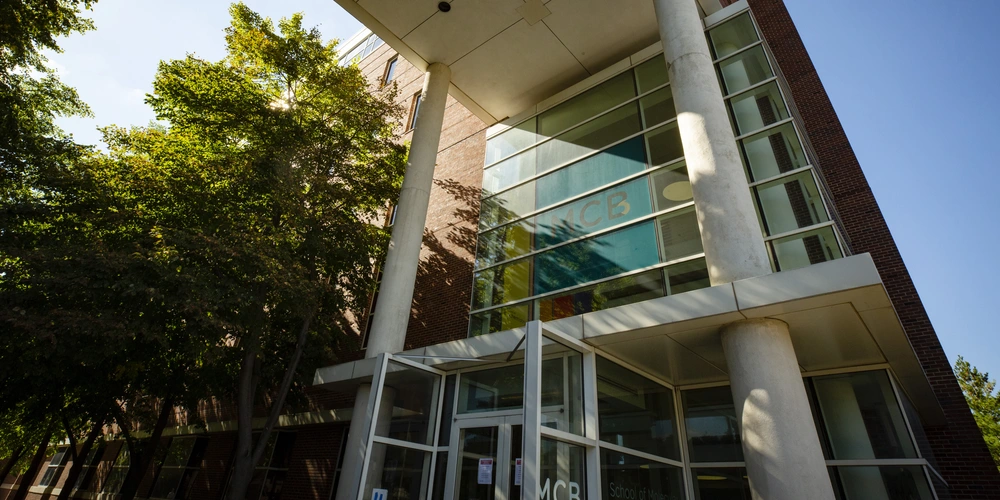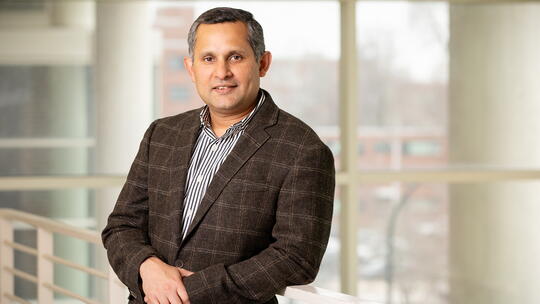
Researchers at the University of Illinois Urbana-Champaign will develop a radically new platform to manufacture tumor models and expand their availability for medical research and personalized medicine, thanks to a $21 million grant from the Advanced Research Projects Agency for Health, an agency in the U.S. Department of Health and Human Services whose mission is to fund high-impact solutions to society’s most challenging health problems.
The U. of I. project “will create a fundamentally new manufacturing technology that uses artificial intelligence, robotics, and vision systems to monitor and control the growth of tumor models,” said Bill King, the Ralph A. Andersen Endowed Chair in Mechanical Science & Engineering and principal investigator.
The Illinois team consists of King; co-P.I. Rohit Bhargava, Grainger Distinguished Chair in the Department of Bioengineering and Director of the Cancer Center at Illinois; Kannanganattu V. Prasanth, Horwitz Scholar and professor of Cell & Developmental Biology in the School of Molecular & Cellular Biology; and Minh N. Do, Thomas and Margaret Huang Endowed Professor of Electrical & Computer Engineering and the Coordinated Science Lab. They will also partner with Edison T. Liu, a Professor, President Emeritus, and Honorary Fellow at The Jackson Laboratory, one of the world’s largest providers of animal tumor models.
“It’s a really a diverse group,” said KV Prasanth, a biologist whose research is in gene regulation and cancer. “Because we’re developing a completely different system, the work requires a lot of collaboration with different groups—biology, mechanical engineering, bioengineering, and electrical and computer engineering.”
Most tumor models that researchers have used to study cancer and test potential treatments are two-dimensional cultures grown on flat surfaces. Researchers also use three-dimensional tumor models grown in a gel medium that are superior to two-dimensional cultures because they more closely resemble the behavior of cancer in humans. But 3D models are available for only a few cancers and are difficult to grow. Such problems have been a barrier to their widespread adoption for research—for example, on drug development and screening—and for other purposes.
The Illinois team will create an automated production platform that can quickly manufacture 3D tumor models. The researchers will use advanced imaging technology to monitor the tumors while they grow. An AI “brain” will interpret the images and use the information to intelligently direct the tumor model growth conditions.
“We will integrate advanced chemical imaging technology with the manufacturing platform, and the chemical images will feed AI tools that will help us to understand tumor behavior,” Bhargava said.

Prasanth and his group will conduct a variety of biological experiments on the breast cancer organoid models, analyzing their behavior under conditions, such as hypoxia, estrogen and DNA damage, which are linked to cancer development.
“By using three types of biological challenges, we will see how these breast cancer organoids are behaving,” Prasanth said.
The ultimate goal is to provide consistent and repeatable production of 3D tumor models of any cancer type. The technology should therefore enable the scalable manufacturing of, for example, cancers from individual patients, cancers prevalent in underserved and minority communities, or rare cancers for which there is little hope of finding a cure.
“This is a flagship project that will allow our university to make a real impact on cancer research and medicine,” said Rashid Bashir, Dean of the Grainger College of Engineering at Illinois. “We are delighted to have the opportunity to drive research excellence and innovation at the intersection of manufacturing science and engineering for medicine.”

